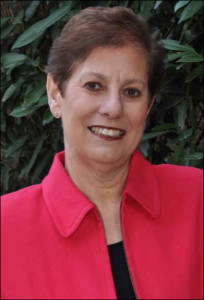
We help families meet the challenges of helping aging loved ones to live the lives they want to live as they grow older
Co-op/condo advisory and psychotherapy with aging adults and their families

Susan Birenbaum Associates LLC was founded by Susan Birenbaum, a certified Aging Life CareTM Manager. Aging Life Care ProfessionalsTM provide expert assistance in caring for you or a family member. We are partners to help you make the best decisions and deliver the best solutions for you and your loved ones. It’s a holistic approach – with the client and their family at the center – that respects your values, preferences and resources.

Our unique expertise is based on proven practices and knowledge gathered from Aging Life Care™ care manager experiences over 30 years with millions nationwide.READ MORE

We have developed an expertise in working with residence groups to solve situations so evictions can be avoided and unfortunate incidents do not occur.READ MORE

Many aging adults suffer psychological stress and disorders during the final aging years including depression and anxiety, grief from loss of a loved one, among others.
READ MORE

Susan Birenbaum is the founder of Susan Birenbaum Associates LLC. She is a certified Aging Life Care™ Manager for over 12 years; a New York State Licensed Clinical Social Worker (LCSW); and has Guardianship Certification by the State of New York.
Susan has been appointed Court Evaluator and Guardian in Guardianship Cases by the Supreme Court of the State of New York. Susan published an article, “Neighbor to Neighbor: Dealing with Aging Residents” in The COOPERATOR, The Condo, HOA & Co-op Monthly. Susan is frequently quoted as an expert including in the article, “Dealing with the infirm: Older Residents & Geriatric Care”, Habitat Magazine and also in “How To Care for Your Aging Parents, New York Magazine. Susan has taught at the Brookdale Center for Healthy Aging & Longevity, Hunter College, CUNY. She designed a Certificate Program in Geriatric Care Management for Medgar Evers College, CUNY. She also has worked on developing a Geriatric Care Management Program for NYU Silver School of Social Work. Susan is Co-Chair, Temple Shaaray Tefila NYC, Caring Committee and Kesher Program for homebound individuals in the community). She has served on the Board of Directors, NYC Chapter, Aging Life Care Association™.
She has served on the Board of Directors of her Co-op Association. Susan holds a Master of Social Work from New York University Silver School of Social Work, a Master in Business Administration from New York University Stern School of Business Administration, and a B.A, from The University of Connecticut. She was formally a Coordinator at The Postgraduate Center for Mental Health. Prior to entering the field of Social Work, she was a Vice President, Private Banking, Citibank N.A. In her practice, Susan works closely with Attorneys, Physicians, Wealth Managers, Financial Advisors and Trustees.
Susan Birenbaum discusses the critical role an Aging Life CareTM Manager plays in the support and advocacy on the part of aging adults living in New York’s co-op apartments and condominium buildings in New York City
Mark, New York
Mark, New York
Since my wife is an only child, we came to rely on Susan as our “extra pairs of eyes and ears” to ensure that my mother-in-law was well taken care of. Susan was able to identify changes in my mother-in-law’s condition that needed attention, observe her aides, and overall evaluate the services she was receiving.
Phil,
Geriatric Psychiatrist
Phil,
Geriatric Psychiatrist
I have always had confidence in Susan’s skill as a psychotherapist to be able to engage patients and gain their trust, provide needed support and use excellent judgment. We work in close contact and Susan will immediately notify me about changes that she believes need my attention
Dan, United Kingdom
Dan, United Kingdom
We owe it to Susan that we were able to remain UK-based (coming monthly to New York for a week to visit and make sure that everything was ok ) during my mother’s last years, safe in the knowledge that she was well-looked after and her needs attended to.
Jim,
Elder Care Attorney
Jim,
Elder Care Attorney
Susan is by far the best Aging Life Care Manager that I have had the pleasure to work with. Susan is extremely intelligent, energetic and very knowledgeable in all aspects of senior care management.
Yes. We are familiar with nursing homes and similar facilities and can help identify an appropriate new home for your mother, and also work with the hospital social worker to develop an appropriate discharge plan.
Yes. This is an example of someone who could benefit from psychotherapy. The therapist can help him with his concerns and his resistance.
We can come in and do a detailed assessment and plan of needs. After this, we can discuss it with you and your parents in order to identify the best solution.
Probably not. If the major problem that your father has is difficulty going to doctor’s office and managing his medication, we can escort him to his appointments and set up a system for him to handle his medication regimen.
We can work with your mother to discuss the situation and then contact the bank to change the process for withdrawals.
My mother has never had to manage her money or pay bills. She is very confused and frightened about this. What can be done?
We can assist your mother and perform the basic money management, bill paying, Medicare payments, etc. for her and also inform you of the work.
We can help you understand the options. We will also evaluate your mother and help you to develop a plan for either staying in her home or going to assisted living.
We call this family mediation and it is a common challenge. We have proven techniques to help you learn how to better communicate and develop solutions which are agreeable to both of you.
It is common. Hoarding is a symptom of a serious problem and also can be a danger to the individual. There is the potential for falls, fires and bugs from garbage. We can assist in working with your father to resolve the behavior or finding people who specialize in hoarding issues.
People of all ages can benefit from therapy and do not have to suffer with depression.
First, we talk with your mother to understand her reaction to having an aide. Next, we talk with the aide to help him/her understand the situation. If necessary, we discuss the problem with the agency providing the aide to find an alternative.
I do not live near my mother and am concerned that she has become very isolated.
We can visit your mother regularly and find ways to reduce her isolation.
Aging Life Care™ / geriatric care management is a holistic, client-centered approach to caring for older adults or others facing ongoing health challenges. Working with families, the expertise of Aging Life Care Professionals™ provides answers at a time of uncertainty. Their guidance leads families to the actions and decisions that ensure quality care and an optimal life for those they love – reducing worry, stress and time off of work for family caregivers through:
Housing – helping families evaluate and select appropriate level of housing or residential options
Home care services – determining types of services that are right for a client and assisting the family to engage and monitor those services
Medical management – attending doctor appointments, facilitating communication between doctor, client, and family, and if appropriate, monitoring client’s adherence to medical orders and instructions
Communication – keeping family members and professionals informed as to the well-being and changing needs of the client
Social activities – providing opportunity for client to engage in social, recreational, or cultural activities that enrich the quality of life
Legal – referring to or consulting with an elder law attorney; providing expert opinion for courts in determining level of care
Financial – may include reviewing or overseeing bill paying or consulting with accountant or client’s Power of Attorney
Entitlements – providing information on Federal and state entitlements; connecting families to local programs
Safety and security – monitoring the client at home; recommending technologies to add to security or safety; observing changes and potential risks of exploitation or abuse
Long-distance care – coordinating the care of a loved one for families that live at a distance; including crisis management
Local, cost-effective resources are identified and engaged as needed.
A care plan tailored for each individual’s circumstances is prepared after a comprehensive assessment. The plan may be modified, in consultation with client and family, as circumstances change.
An Aging Life Care Professional™, also known as a geriatric care manager, is a health and human services specialist who acts as a guide and advocate for families who are caring for older relatives or disabled adults. Aging Life Care Professionals™ (or Aging Life Care™ Managers, Aging Life Care™ Nurses, etc.) provide expert assistance in caring for a family member or friend. We are partners to help you make the best decisions and deliver the best solutions for you and your loved one. It’s a holistic approach – with the client (aging adult) at the center – that respects your values, preferences, and resources.
The Aging Life Care Professional™ assists clients in attaining their maximum functional potential. The individual’s independence is encouraged, while safety and security concerns are also addressed. Aging Life Care Professionals™ are able to address a broad range of issues related to the well-being of clients. They bring extensive knowledge about the costs, quality, and availability of resources in their communities.
Aging Life Care Professionals™ become the “coach” and families or clients the “team captain” in this collaborative process.
Aging Life Care Professionals™ are members of the Aging Life Care Association™ (ALCA) and differ from Patient Advocates, Senior Advisors, Senior Navigators, and Elder Advocates. ALCA members must meet stringent education, experience, and certification requirements of the organization, and all members are required to adhere to a strict code of ethics and standards of practice.
When care giving for an aging family member becomes overwhelming, it may be time to contact an Aging Life Care Professional™.
You may need an Aging Life Care Professional™ if:
Aging Life Care™ services are offered in a variety of settings and often provide:
Aging Life Care Professionals™ come from a variety of backgrounds and fields of experience. Usually, they are licensed social workers, nurses, therapists or gerontologists. They typically have advanced degrees. They most often have worked for many years in a related field before becoming an Aging Life Care Professional™.
While there is no licensure for Aging Life Care Professionals™, many are licensed in their individual specialties as required by state laws, i.e. nursing, social work, psychology, etc. ALCA has endorsed certification and has several levels of membership, including the Advanced Category, achieved when members hold at least one approved certification. Currently there are four accepted certifications: Care Manager Certified (CMC), Certified Case Manager (CCM), Certified Social Work Case Manager (C-SWCM) and Certified Advanced Social Work Case Manager (C-ASWCM).
Additional membership categories include Professional Member (for Aging Life Care Professionals™ who are not yet certified), Associate Member (for members who have not yet met the required experience working in the profession), Emeritus Member (for retired or otherwise non-practicing members), Student Member (for those enrolled in an undergraduate or graduate program for the purpose of becoming an Aging Life Care Professional™).
Most Aging Life Care Professionals™ work in fee-for-service agencies and bill privately for services. Long- term care insurance policies may cover some services. In addition, some employee assistance programs may cover Aging Life Care™ as a benefit.
Traditional medical insurance and Medicare do not cover Aging Life Care™ services, but the Aging Life Care Professional™ can refer the client for any skilled services that Medicare covers.
Most Aging Life Care Professionals ™ bill by the hour for their time, similar to attorneys. Some have flat monthly rates or may incorporate the Aging Life Care™ cost with other services.
Aging Life Care Professionals™ can provide caregiver support; alleviate stress through meeting individualized needs, and offer information about local services. They can recommend the most appropriate, available, and cost-effective services that will support the older adult and the family. Aging Life Care Professionals™ monitor and evaluate services and make adjustments as needs change. They can perform important services to physicians by monitoring medical treatment compliance issues, help with medications, and assuring that scheduled appointments are kept. For long-distance caregivers, Aging Life Care Professionals™ can provide the ongoing supervision and communication link so often needed to avoid frequent and costly trips.
ALCA is a nonprofit professional organization representing the field of Aging Life Care™ (also known as geriatric care management). ALCA promotes high standards of practice, professional ethics, and continuing education for its members. Membership is open only to individuals qualified by education and experience. Since its formation in 1985, ALCA has become the recognized and respected lead organization of practitioners in this field. Primarily a national organization ALCA also has members in Canada and other countries.
Members of the Aging Life Care Association™ must agree to adhere to the Code of Ethics and Standards of Practice for Aging Life Care Professionals™. The ALCA standards are intended to supplement existing standards of other professional associations our members may belong to, and to provide guidance to ALCA members in the many complex situations presented by their practices.
Currently there are four accepted certifications: Care Manager Certified (CMC), Certified Case Manager (CCM), Certified Social Work Case Manager (C-SWCM) and Certified Advanced Social Work Case Manager (C-ASWCM).
When choosing an ALCA member, consumers can be assured of the quality standards required by the association, including the Standards of Practice and the Code of Ethics. Consumers choosing a certified member have the additional confidence that members have been supervised, qualified for and successfully passed an exam, and possess core knowledge about Aging Life Care™.
Frequent falls or unexplained bruises
Unexplained weight loss of 10 lbs. or more in a 12-month period
Forgetting to take medication/overdoses of medication/mistakes in taking medication as ordered/abusing medication
Bizarre or deviant behavior
Getting lost while driving or walking
Extreme suspiciousness
Loss of interest in social activities/social isolation
Neglecting to pay bills or cash checks
A small kitchen or bedroom fire
Not eating properly or regularly
Abusing alcohol/drugs
Unsafe driving/ getting driving violation tickets frequently and/or involved in driving accidents
Confusion/judgment in question/increased forgetfulness
New balance or mobility problems and refusing to use cane or walker
Health complaints/symptoms, but refusing to see the doctor
Forgetting things cooking on the stove or turning on burners or appliances and forgetting to turn
them off
One spouse overwhelmed or in poor health caring for a dependent spouse
Complex medical or psychological problems or chronic health conditions that require ongoing
oversight
Family members struggling to meet the needs of their loved ones, exhausted, or overwhelmed
Family members living at a distance, or disagreeing over care solutions
How can the Aging Life CARE™ MANAGER help when my mother continually fires the home health care aide?
First, we talk with your mother to understand her reaction to having an aide. Next, we talk with the aide to help him/her understand the situation. If necessary, we discuss the problem with the agency providing the aide to find an alternative.
I do not live near my mother and am concerned that she has become very isolated.
We can visit your mother regularly and find ways to reduce her isolation.
My mother’s doctor says that she is depressed and should see a therapist. Isn’t she too old?
People of all ages can benefit from therapy and do not have to suffer with depression.
My father’s apartment is loaded with old newspapers, empty bottles, and other things. Is this typical of old age?
It is common. Hoarding is a symptom of a serious problem and also can be a danger to the individual. There is the potential for falls, fires and bugs from garbage. We can assist in working with your father to resolve the behavior or finding people who specialize in hoarding issues.
My sister and I have differences as to the best way to help my mother. We have always had difficulties getting along, but now it is worse. What can we do?
We call this family mediation and it is a common challenge. We have proven techniques to help you learn how to better communicate and develop solutions which are agreeable to both of you.
I am my mother’s caregiver and I am facing the decision of whether she can stay in her home or should move to assisted living. I do not understand the options, what can I do?
We can help you understand the options. We will also evaluate your mother and help you to develop a plan for either staying in her home or going to assisted living.
I do not live near my mother and I know that she has allowed her Home Aide to use her ATM card to get cash. I am not comfortable with this process, but my mother insists. What can I do?
We can work with your mother to discuss the situation and then contact the bank to change the process for withdrawals.
My mother has never had to manage her money or pay bills. She is very confused and frightened about this. What can be done?
We can assist your mother and perform the basic money management, bill paying, Medicare payments, etc. for her and also inform you of the work.
My father has many medical appointments and medications. He has difficulty going to HIS DOCTOR’S office and managing his medication. Does he need to go to a nursing home?
Probably not. If the major problem that your father has is difficulty going to doctor’s office and managing his medication, we can escort him to his appointments and set up a system for him to handle his medication regimen.
My mother has early stage Alzheimer’s and relies on my father as a caregiver. My father is not well and is becoming frailer. He refuses to allow help in the house. What can be done?
We can come in and do a detailed assessment and plan of needs. After this, we can discuss it with you and your parents in order to identify the best solution.
My father has moved to an assisted living facility and is having major problems adjusting to the place. Is there anything that can help him?
Yes. This is an example of someone who could benefit from psychotherapy. The therapist can help him with his concerns and his resistance.
My mother is being discharged from the hospital and we have to find a nursing home. Can someone provide assistance?
Yes. We are familiar with nursing homes and similar facilities and can help identify an appropriate new home for your mother, and also work with the hospital social worker to develop an appropriate discharge plan.
